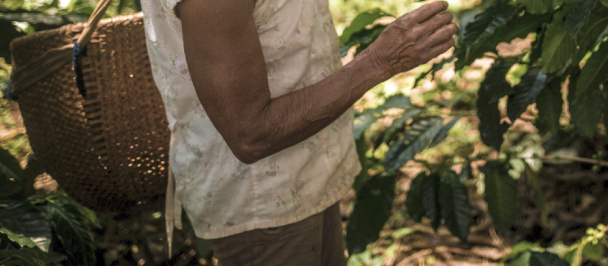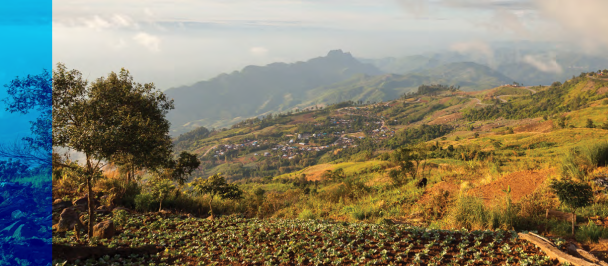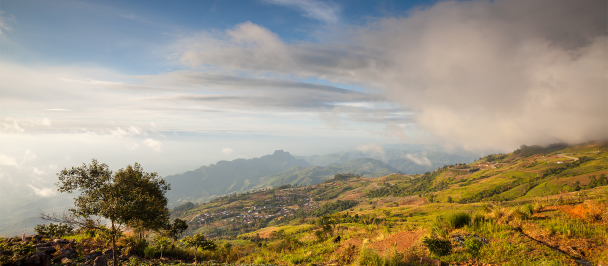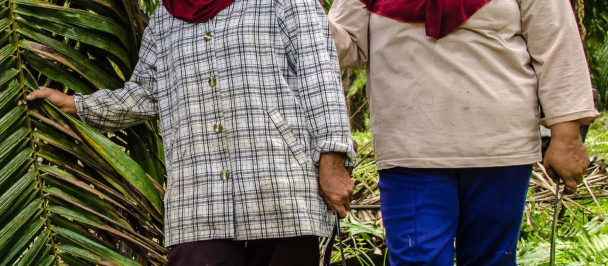Indonesia’s government, including the Ministry of Agriculture and the Ministry of Forestry and Environment, held key palm oil sector talks this week in Jakarta with multinational companies, and associations representing thousands of farmers, to identify ways to increase smallholder palm oil productivity and eliminate deforestation from the country’s palm oil supply chain.
Over 100 technical experts gathered as part of the Indonesian Palm Oil Platform (InPOP) to strategize and identify practical solutions to the fundamental challenges in Indonesia’s palm oil sector, a cornerstone of the country’s economy but also a main cause of deforestation and increased greenhouse gas emissions. Indonesia aims to almost double palm oil production by 2020 in response to global demand.
“As the world’s top palm oil producer, it is in Indonesia’s best interest to remain competitive,“ said Gamal Nasir, Director General of Estate Crops at the Agriculture Ministry. “To do this, we must anticipate the latest industry trends. Today, this means implementing practices that are in line with the Sustainable Development Goals and climate change mitigation. "
The two-day talks focussed on smallholder capacity building, environmental management and monitoring, governance and mediation of disputes, and the government-led Indonesian Sustainable Palm Oil (ISPO) standard. Subsequently working groups were established, with government, private sector and civil society representation to reach alignment on targets and actions for the sector.
The working groups addressed issues including the degradation of peatlands, inconsistent regulations between government ministries, lack of access to working capital for smallholders, conflict resolution (surrounding land) and capacity building to meeting ISPO standards, among others.
“This government-led multi-stakeholder platform is about protecting Indonesia's rich natural resources while at the same time improving the lives of the smallholders. It's part of a bigger strategy to achieve the balance between environmental protection and the economic growth that is needed to reduce poverty and enhance the living standards of all people across this vast country," said Beate Trankmann, UNDP Indonesia Country Director.
“Improving the sustainability of the palm oil sector in Indonesia will require comprehensive policy responses as well as practical solutions for farmers. This can only be achieved through a broad coalition of actors including the government, the private sector, farmers and communities. UNDP stands ready to support Indonesia in this important undertaking,” she added.
In Indonesia, smallholders produce 40 percent of the country’s palm oil and the challenges they face to implement responsible farming practices while improving their livelihoods have been widely acknowledged.
“Smallholders understand the need for sustainability and improved traceability in the sector,” said Saut Benny Sinaga, of the Oil Palm Smallholders Union (SPKS) that represents some 20,000 smallholders in Sumatra and Kalimantan, key palm oil-producing areas. “We need distribution channels for seeds and fertilizers, capacity building, and access to working capital if we are to make the switch to responsible farming,” said Mr Sinaga, whose family has been working in the sector for over 30 years.
InPOP was officially established by the Indonesian Agriculture Ministry and UNDP in October 2014, with the aim of improving the sustainability of Indonesia’s palm oil sector. It is linked to UNDP’s broader Sustainable Palm Oil Initiative that works at the national level and in three pilot provinces (Riau, South Sumatra and West Kalimantan), and includes other activities, including support to ISPO. The InPOP approach will also be applied in these three provinces.
These latest InPOP talks will also assist Indonesia to follow through its endorsement of the ambitious 2014 New York Declaration on Forests that commits global leaders to reduce natural forest loss in half by 2020, and to strive to end deforestation by 2030.

 Locations
Locations



